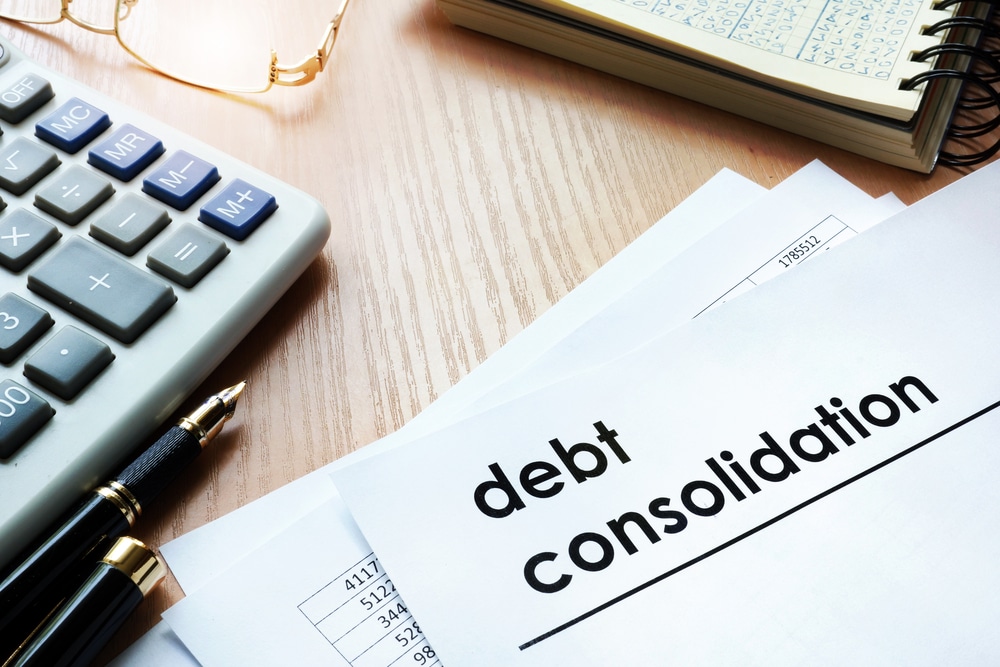Before diving deeper into debt consolidation, it is important we define the term. Simply put, debt consolidation involves combining your multiple debts into one large loan and then borrowing a new loan to pay it off. If you wish to consolidate your debts, this is the right article for you. Read on to learn more.
How Does Debt Consolidation Work?
You can settle your old debt with a new debt using various ways. For example, you can obtain a new credit card that has a higher credit limit and use it to pay off the old loan. Debt consolidation can be an effective way of simplifying your financial life, especially when the new loan or credit card you obtain has low interest rates and allows you to make smaller loan repayments. Moreover, since you have consolidated your old debts, you will have fewer bills to settle every month.
📈🤖 Unlock unparalleled trading potential with GPT Stocks Master AI! Revolutionize your portfolio, leveraging real-time insights and predictive analytics. Don’t miss out – step into a world where precision and profitability meet. Ready to transform your trading journey? Click “Master My Trades” now for your exclusive access! ✨🚀📊
Example of Debt Consolidation
Say you hold three credit cards with a combined debt of $20,000, which has a 22.9% yearly interest rate attached to it. In this case, you will need to make monthly repayments of at least $1,045 for 24 months to clear the debt. Moreover, you will pay interest of about $4,600.
Now, suppose you consolidate these credit cards into one card that attracts lower annual interest of, say, 11%; you will be required to pay $930 monthly for 24 months to settle the debt. Further, you’ll pay $2,150 in interest.
What are the Risks Related to Debt Consolidation
Debt consolidation comes with several risks that you must consider. For example, when you borrow a new loan, it might damage your credit score, which then affects your ability to qualify for other loans. Moreover, you risk paying high total interest if you obtain a new loan with low monthly repayments but have a longer repayment period.
Debt Consolidation Loans
Consolidating your debt using various types of credit cards or loans is possible. The type of debt consolidation loan you choose depends on the types of your existing loans, their terms, and your financial situation.
Debt consolidation loans are divided into two: Secured loans and unsecured loans. A secured debt consolidation loan is backed by assets such as your car or home. In other words, it is a collateralized loan. On the other hand, an unsecured loan is not backed by any asset. But it has numerous downsides. For instance, lenders of unsecured loans charge considerably high interest rates and offer low loan amounts.
Regardless of the type of debt consolidation loan you choose, you need to prioritize the debts to clear first. It makes sense to begin by settling the debt with the highest interest.
Here are some of the debt consolidation loans you can obtain:
Personal Loans
Personal loans are unsecured loans obtained from credit unions or banks. You can use the amount you get for any purpose. The best part about such loans is that their interest rates are lower than credit cards, making them ideal for settling credit card debts.
Credit Cards
There are several credit cards in the United States that offer zero interest rates within the first months (usually 8 to 20 months). So you can get one of these cards, then transfer your debt balance to it and use the promotional period to settle the existing debt.
Home Equity Loans
In case you own a home and have developed equity over time, you can obtain a home equity loan and use it to pay off your consolidated debt. Interest rates charged by lenders of home equity loans are generally lower than those attached to credit cards.
Qualifying for a Debt Consolidation Loan
You must meet the loan requirements of a particular lender to obtain money for clearing your consolidated debt. A lender may ask you to submit a letter of employment or letters from repayment agencies and creditors and may check your credit score to consider you for a new loan.

